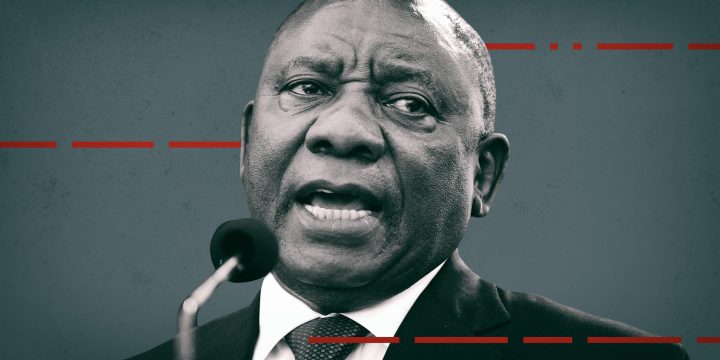SA INVESTMENT CONFERENCE
The Covid-19 noose around President Cyril Ramaphosa’s investment drive

At the third annual SA Investment Conference, which will take place on 17 and 18 November, the president’s envoys will focus on ensuring that investment pledges worth R664bn – made by companies in 2018 and 2019 – are not destroyed by the Covid-19 pandemic.
President Cyril Ramaphosa’s investment envoys probably had their work cut out for them in marketing SA as an attractive investment destination to potential investors during an economic meltdown turbocharged by the Covid-19 pandemic.
The race to attract new and long-term capital has intensified around the world, with many countries looking to rebuild their economies and labour markets through large-scale private sector investments. Available capital might be scarce as many companies and money managers have decided to either defer capital allocations to a later stage until the world is more certain, or worse, permanently mothball it.
SA has probably experienced both situations.
At the third annual SA Investment Conference, which will take place on 17 and 18 November, Ramaphosa’s envoys will focus on ensuring that investment pledges worth R664-billion – made by companies in 2018 and 2019 – are not destroyed by the Covid-19 pandemic.
Some of these investment pledges – involving companies building roads and other infrastructure, production factories, and investing in research and design – are still at a planning stage and have not translated into demonstrable investment in the economy.
Covid-19 impact
An estimated 9% of the total pledges (R664-billion) – nearly R60-billion – has already been derailed by the pandemic, according to Trade, Industry and Competition Minister Ebrahim Patel, whose department is tasked with creating an enabling regulatory environment for investments.
Patel said companies that have pledged a combined R60-billion have indicated to Ramaphosa’s envoys that “they will slow down the implementation [of investment pledges] due to, in part, the Covid-19 pandemic”.
“None of the pledges that has been made has disappeared. No company has written to us to indicate that they want to withdraw the pledge,” Patel said at a media briefing on Monday 9 November ahead of the conference.
The conference is part of Ramaphosa’s campaign to raise R1.2-trillion in new domestic and international investments over the next five years to boost SA’s fragile economy and create jobs. But the world has dramatically changed since the last conference in November 2019 when Ramaphosa attracted pledges of up to R371-billion from local and foreign companies, about a quarter more than he secured in 2018. The pledges, Ramaphosa declared, could “conservatively” lead to the creation of 412,000 jobs.
But the Covid-19 pandemic could undermine Ramaphosa’s drive to attract more pledges in 2020. SA’s economy, like others around the world, is expected to contract by more than 7% in 2020, according to forecasts by the government and business. Public finances have deteriorated further; the fiscal deficit (shortfall between revenue and expenditure) rose from 6.4% of GDP at the start of 2020 to 16%, and the national debt is expected to peak at 95.3% of GDP in 2026.
These numbers might prompt investors to ditch SA and search for another investment destination. But Patel takes umbrage at this suggestion.
“The global picture is challenging. We think that the SA storyline has a number of positives and the conference will highlight the positives. We believe that FDI [foreign direct investment] can pick up on the back of the African Continental Free Trade Agreement,” he said. The agreement promotes increased trade among African countries and aims to create a single continental market for goods and services.
The SA Investment Conference in 2020 is more important for SA’s fortunes because aspects of Ramaphosa’s recently published plan, which seeks to reboot an economy battered by Covid-19, depend on private sector investments. For instance, Ramaphosa’s economic plan proposes that the government spend about R100-billion over the next decade on new infrastructure projects such as roads, water sources and new energy generation projects.
The government cannot afford to independently fund these projects and will be looking to the private sector and pension funds to invest in the country. Patel said Ramaphosa’s recovery plan will be showcased to investors at the SA Investment Conference. DM/BM



















 Become an Insider
Become an Insider
Comments - Please login in order to comment.